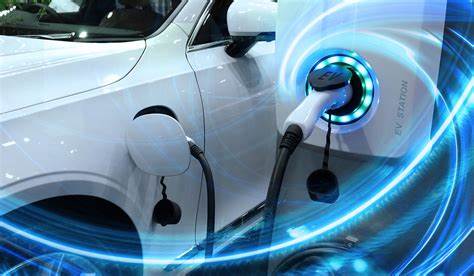The emergence of electric vehicle (EV) technology represents a significant shift in the automotive industry towards sustainability and environmental conservation. With concerns over climate change and air pollution mounting, electric vehicles offer a promising solution to reduce greenhouse gas emissions and dependence on fossil fuels. In this article, we’ll explore how electric vehicle technology is shaping the future of transportation as a sustainable solution:
- Zero-Emissions Driving: Electric vehicles run on electric motors powered by rechargeable batteries, eliminating the need for gasoline or diesel fuel and producing zero tailpipe emissions. By transitioning from internal combustion engines to electric propulsion systems, EVs significantly reduce greenhouse gas emissions and air pollutants such as carbon dioxide (CO2), nitrogen oxides (NOx), and particulate matter (PM), contributing to cleaner air and a healthier environment.
- Energy Efficiency: Electric vehicles are more energy-efficient than conventional gasoline-powered vehicles, converting a higher percentage of energy from the grid into vehicle propulsion. According to the U.S. Department of Energy, electric vehicles are two to three times more efficient than internal combustion engine vehicles in terms of energy use. This increased efficiency translates into lower fuel costs for consumers and reduced energy consumption overall, making electric vehicles a cost-effective and sustainable transportation option.
- Renewable Energy Integration: Electric vehicles offer the potential to integrate renewable energy sources such as solar and wind power into the transportation sector, further reducing carbon emissions and reliance on fossil fuels. By charging EVs with renewable electricity generated from solar panels or wind turbines, drivers can minimize their carbon footprint and support the transition to a cleaner, more sustainable energy system. Vehicle-to-grid (V2G) technology also enables EVs to store and discharge electricity, providing grid stabilization and energy storage capabilities.
- Advancements in Battery Technology: Advances in battery technology have significantly improved the performance, range, and affordability of electric vehicles in recent years. Lithium-ion batteries, the most common type of battery used in EVs, have become lighter, more compact, and more energy-dense, allowing for longer driving ranges and faster charging times. Ongoing research and development efforts are focused on improving battery chemistry, increasing energy density, and reducing costs to make electric vehicles more accessible to a wider range of consumers.
- Infrastructure Development: The widespread adoption of electric vehicles requires a robust charging infrastructure to support charging needs for drivers at home, at work, and on the go. Governments, utilities, and private companies are investing in the deployment of charging stations in urban areas, highways, and public spaces to provide convenient access to charging for EV owners. Fast-charging technologies are also being developed to reduce charging times and improve the convenience of electric vehicle ownership.
- Market Growth and Adoption: Electric vehicle sales have been steadily increasing worldwide, driven by advancements in technology, government incentives, and growing consumer demand for sustainable transportation options. According to the International Energy Agency (IEA), global electric car sales surpassed 3 million units in 2020, with electric vehicles accounting for approximately 4% of total car sales. As battery costs continue to decline and electric vehicle technology matures, analysts predict that EV adoption will continue to accelerate, leading to a significant reduction in carbon emissions from the transportation sector.
- Policy Support and Regulations: Governments around the world are implementing policies and regulations to support the adoption of electric vehicles and incentivize the transition to cleaner transportation options. Measures such as electric vehicle subsidies, tax incentives, and zero-emission vehicle mandates encourage consumers to purchase electric vehicles and manufacturers to produce them. Additionally, cities are implementing low-emission zones and vehicle electrification targets to reduce air pollution and combat climate change.
In conclusion, electric vehicle technology represents a sustainable solution for future transportation, offering environmental, economic, and social benefits. By reducing greenhouse gas emissions, improving energy efficiency, and integrating renewable energy sources, electric vehicles play a crucial role in mitigating climate change and transitioning to a low-carbon economy. With continued advancements in technology, infrastructure development, and policy support, electric vehicles have the potential to reshape the automotive industry and pave the way towards a more sustainable and resilient transportation system for generations to come.

